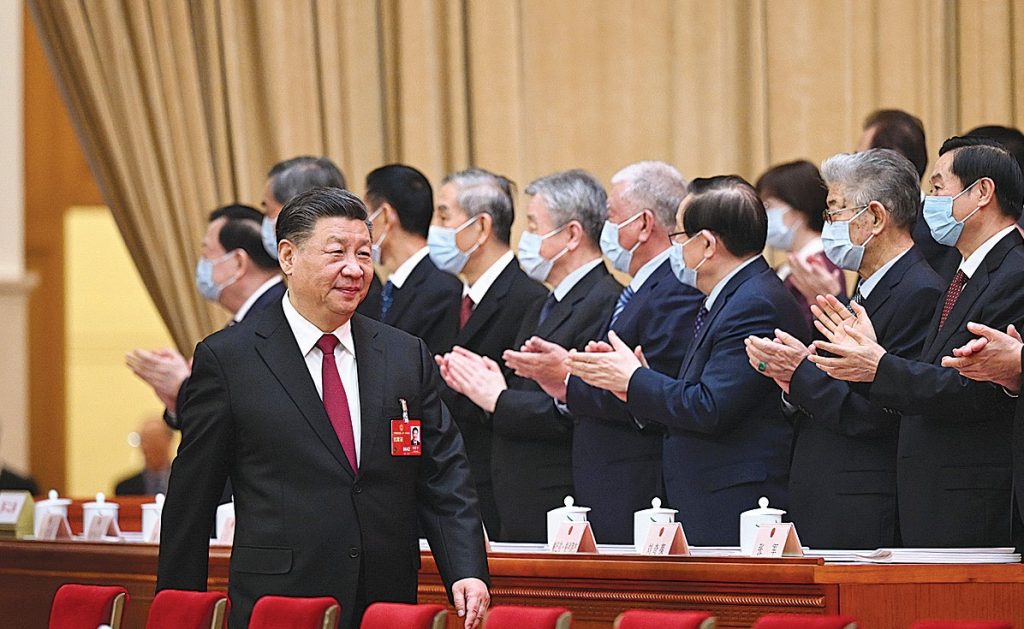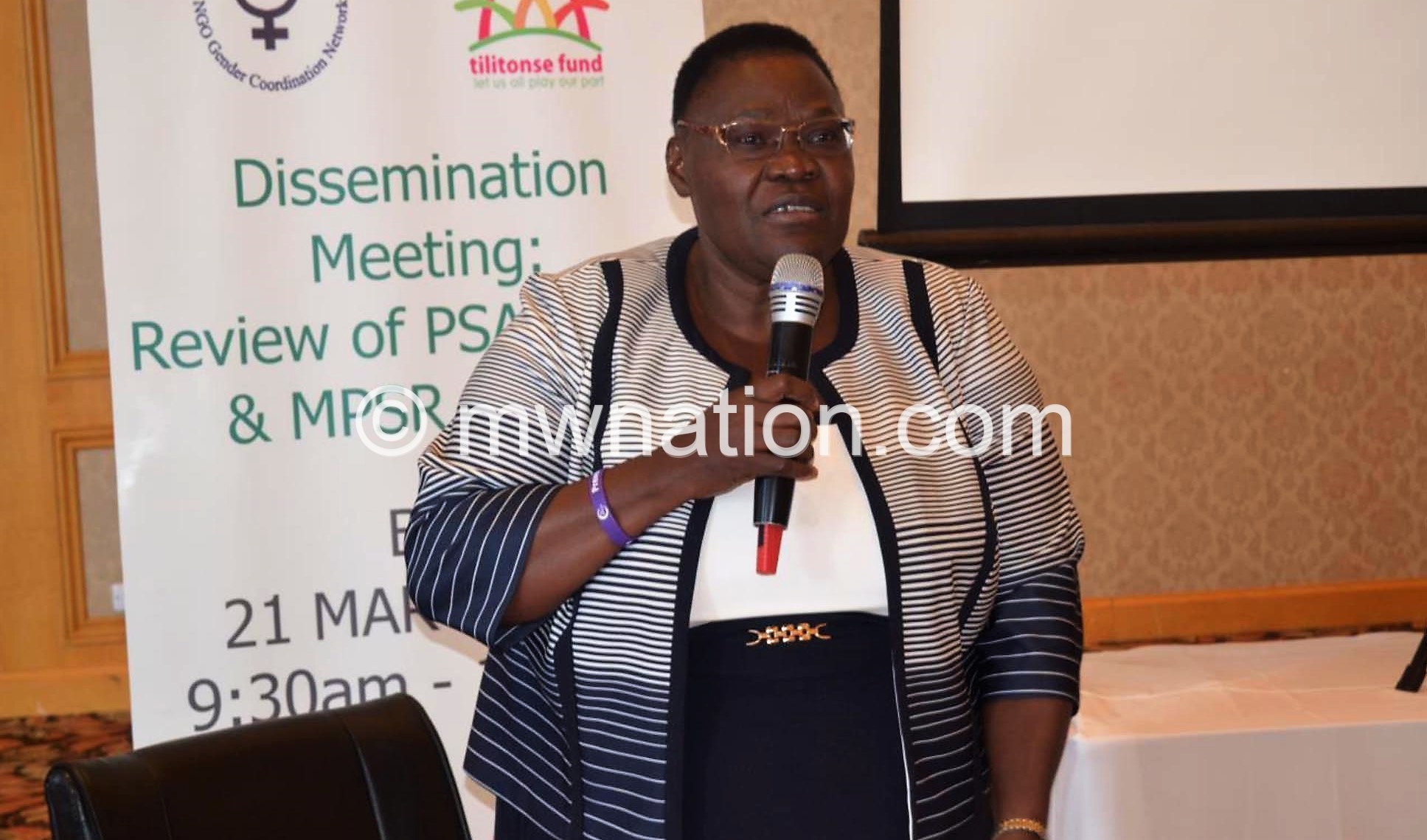Lessons from China’s democracy
From the Western perspective, China is considered undemocratic. But the Eastern giant says it practises democracy the Chinese way. Our Assistant Bureau Chief SUZGO CHITETE attended some high-level political meetings in China and shares his take.
From March 5 to 11 this year, China held its second session of the 14th National People’s Congress (NPC), a legislative body, at the Great Hall in Beijing.

The NPC is to China what the National Assembly is to Malawi.
Even though the representatives here are called deputies, not members of Parliament, the functions are similar.
Of course, prior to the NPC gathering, the National Committee of the Chinese People’s Political Conference Consultative Conference (CPPCC) meets as it did on March 4 at the venue.
The consultative committee plays an advisory role to the NPC, linking citizens to the congress.
The annual meetings, popularly known as the Two Sessions, drive China’s socio-political agenda and people respect them for this reason.
The consultative body has several committees that go to the people to solicit their views on national issues. They consolidate the voices of the people into proposals sent to the NPC.
With this consultative process, China believes it is democratic as its governance is said to be people-driven.
“Whether the West doubts it or not, that’s not our problem” says Professor Wang Yiwei, director of the Institute of International Affairs at Renmin University of China.
During the meeting at the Greet Hall of the People’s Republic of China, the scholar gave a talk to journalists drawn from Africa and other parts of the world.
He argued that China fits well into the definition of democracy as the decision-making process is not only consultative but also people-focused.
“Those in power act in the best interest of the people,” says Wang. “The government makes sure that its people have improved welfare and the designing of all policies have people in mind.
During the deliberations during the Two Sessions, one gets the impression that their emphasis is firmly on what people want.
During the recent meeting, the talks focused on increased funding towards improving livelihoods through job creation.
This year, the deputies in the NPC resolved to create 12 million urban jobs as ‘the people’s government’ did last year.
Chinese President Xi Jinping attended the opening of the two sessions, but without the pomp seen elsewhere, including Malawi, when such a leader goes to Parliament or any other public function.
No deafening sirens from a lengthy presidential motorcade, scary gun-brandishing security personnel and an army of officials buzzing around the President.
Xi Jinping, one of the most powerful world leaders, got into the hall without flourish just like other representatives. Of course, there was handclapping.
Throughout the meetings, the Chinese leader was simply referred to as Comrade Xi Jinping, without funny long, tongue-shattering titles that most African leaders enjoy from their loyalists.
If this was President Lazarus Chakwera of Malawi, his name would not be mentioned without the usual jazz: His Excellency the State President, Head of State and Government….and many others best known to those who insist on them.
Of course, Chakwera’s list is much shorter than the titles piled on the country’s fallen presidents Hastings Kamuzu Banda and Bingu wa Mutharika, who shared the lion-like title of Ngwazi.
But Xi Jinping needed none of this praise-singing when he faced the people’s representatives at the Great Hall.
Instead, Comrade Xi Jinping had to do with a brief title that would pass for contempt if not breach of protocol in the Parliament of Malawi where the President is constitutionally compelled to take pressing questions from lawmakers.
The Chinese way typically defies an outsider’s understanding of China. It will shock anyone whose knowledge is steeped in Western text that this is some autocratic regime.
Malawi, which is said to be more democratic that China, is stuck to the tradition of unnecessary protocol that only serves to distance the President from his own people. As it were during Banda’s autocracy, the titles create a god-like image that presidents are not mortals like any other, but overtly superior to the people they represent.
Chakwera, while in opposition, promised to trim presidential powers, including cutting his motorcade and stopping police from lining up along the road hours before the president passes through.
Nearly four years in power, the Malawi leader enjoys what he vilified and there is no end in sight to the tendency his ascendency.
At the opening of the Two Sessions, there was a heavy presence of journalists; both foreign and local with cameras of all sizes.
Inside the hall, there is a special space for the press where interviews with government officials are conducted.
On both occasions, there were over 3 000 journalists. Apart from the lobby reserved for interviews, the press gallery accommodates 5 000.
In a place considered autocratic, one would think press freedom is nonexistent. Yet, here, journalists are allowed to follow deliberations and talk to whoever they choose to engage.
This provides an interesting contrast to the design of the Parliament of Malawi built and donated by the Chinese themselves.
The National Assembly in Lilongwe has a bizarrely designed press gallery that gives journalists a partial view of the proceeding in the august House. This restricts what the media practitioners can see in their quest to tell the complete story or give a complete picture of Parliament’s business.
During Chakwera’s State of the Nation Address last month, photojournalists were banned from taking pictures of the President. Parliament officials cited “order and decorum” for the press gag. All media houses, including private ones, were forced to get pictures from State House or Malawi News Agency.
Even where an opportunity has been granted, it is usually not easy to take pictures of the President who is usually surrounded by heavy security detail and government officials.
In this regard, the Chinese model challenges the approach of Malawi, a country rated by the global north as more democratic than China.
In between the Two Sessions, there were press conferences at the Media Centre well-designed to give journalists unrestricted interaction with news sources.
Ministers and other top government officials eagerly popped in to provide more clarity on issues presented in the House.
In their dignifying space, journalists took advantage of the occasion to ask questions.
From what is said of China, one would think press freedom is nonexistent, but Malawi can learn from them.
This is the pro-activeness lacking in Malawi. Under the Access to Information law, public servants are required to proactively provide information.
From the doldrums, China has become the world’s second-largest economy in the world.
The infrastructure in China speaks for itself. Security is so tight that people can move day and night without worry, yet the freedom of movement is not without security threats in Western-endorsed democracies.
“We have cameras everywhere and sometimes it feels like violation of people’s privacy, but I guess that is the price we must pay to ensure our country is secured for our people’s freedom,” Wang states.
At the pinnacle of its decision-making processes, China certainly offers some lesson on how self-proclaimed democracies ought to operate.
Maybe it is time Malawi and other Western-styled democracies begin to look at the Chinese model with positive lenses and learn from it.





